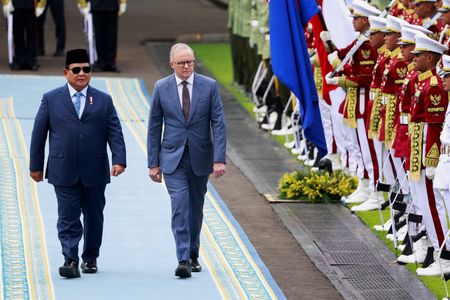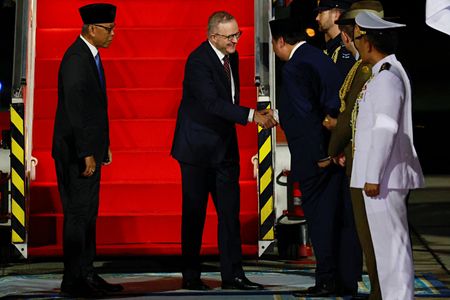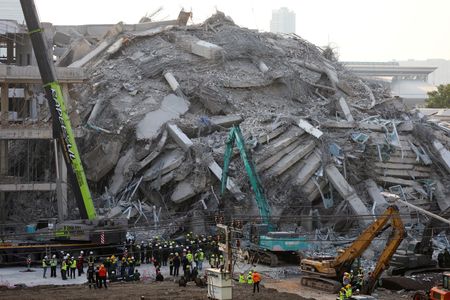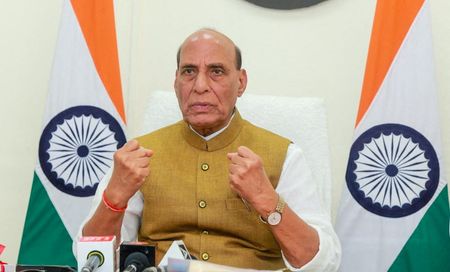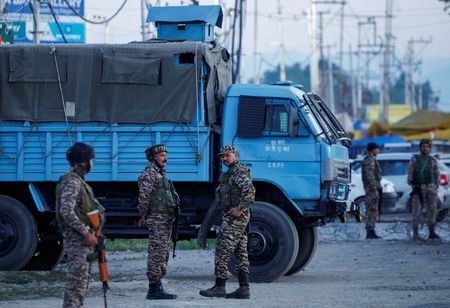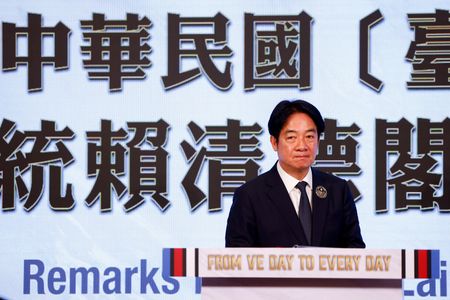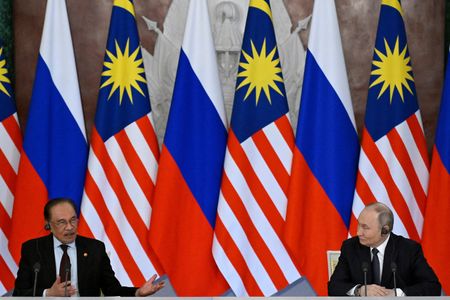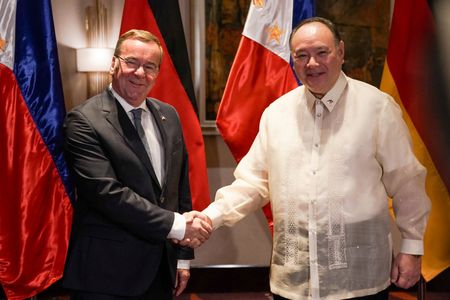By Ananda Teresia and Kirsty Needham
JAKARTA (Reuters) -Australia’s Prime Minister Anthony Albanese held talks with Indonesian President Prabowo Subianto on defence cooperation and global trade on Thursday, describing Jakarta as an “indispenable partner” on his first international visit since his re-election.
Albanese, sworn into office on Tuesday after his centre-left Labor party won an increased majority in parliament, said his visit showed the priority Canberra placed on defence and economic ties with Jakarta.
“Indonesia is an indispensable partner for Australia,” he said in opening remarks, meeting with Prabowo and ministers at the Presidential Palace.
He urged Prabowo to forge closer defence ties with Australia, after an agreement was struck last year covering maritime security, counter-terrorism and disaster response.
“Security is built on the sovereignty of every nation and the rules that govern all nations,” he said when the two leaders addressed the media after their meeting.
Indonesia committed to completing the ratification of the defence agreement, Prabowo said.
“We will continue discussing the opportunities to improve and increase cooperation in defence sector,” he said.
Trade and investment, food security, energy transition and critical minerals were also discussed, Prabowo said.
“We also invite Australia to participate more in our economy. It is important to strengthen such cooperation amid global economy uncertainty,” he added.
Australia wants to increase economic ties with Southeast Asia, as it seeks to diversify export markets to reduce reliance on China, and in response to trade uncertainty caused by U.S. President Donald Trump’s tariffs.
Albanese was welcomed to the palace by dozens of soldiers on horseback, around 3,000 schoolchildren waving flags, and a military ceremony, according to the president’s office.
Indonesia dismissed reports last month that Russia had requested to base military aircraft in the archipelago’s easternmost province of Papua, about 1,200 km (750 miles) north of the Australian city of Darwin, where a U.S. Marine Corps rotational force is based for six months of the year.
“Indonesia’s answer is no, they’ve made it very clear,” Albanese told reporters earlier on Thursday when asked about the matter, which had drawn attention during Australia’s election campaign.
Russia will try to increase its influence in the region and Australia is responding by building ties with neighbours including Indonesia, Albanese added.
Australian Strategic Policy Institute senior analyst for defence, Euan Graham, said the Australia-Indonesia relationship has “avoided serious crisis for more than a decade, cooperation continues to move forward incrementally and there is greater stability than before”.
Yet wide differences remain, he added.
“Jakarta sees China and Russia as vectors of opportunity more than threats and views the U.S. and China primarily through the same lens of great power rivalry. That’s largely at odds with Canberra’s world view,” Graham said.
Indonesia is projected to be the fifth largest economy in the world by the end of the next decade.
(Reporting by Ananda Teresia in Jakarta, and Kirsty Needham and Alasdair Pal in Sydney; Writing by Kirsty Needham. Editing by Lincoln Feast.)

